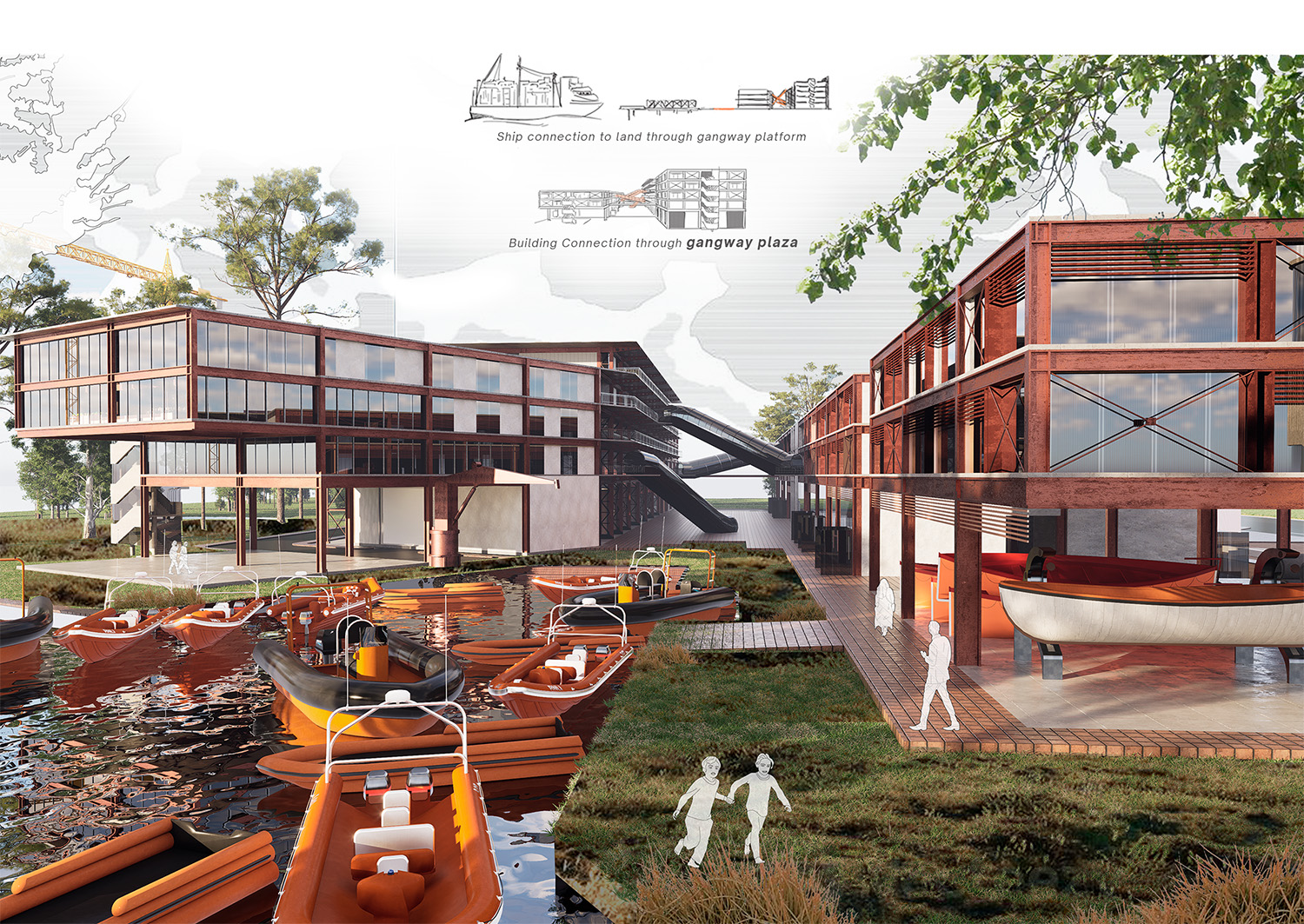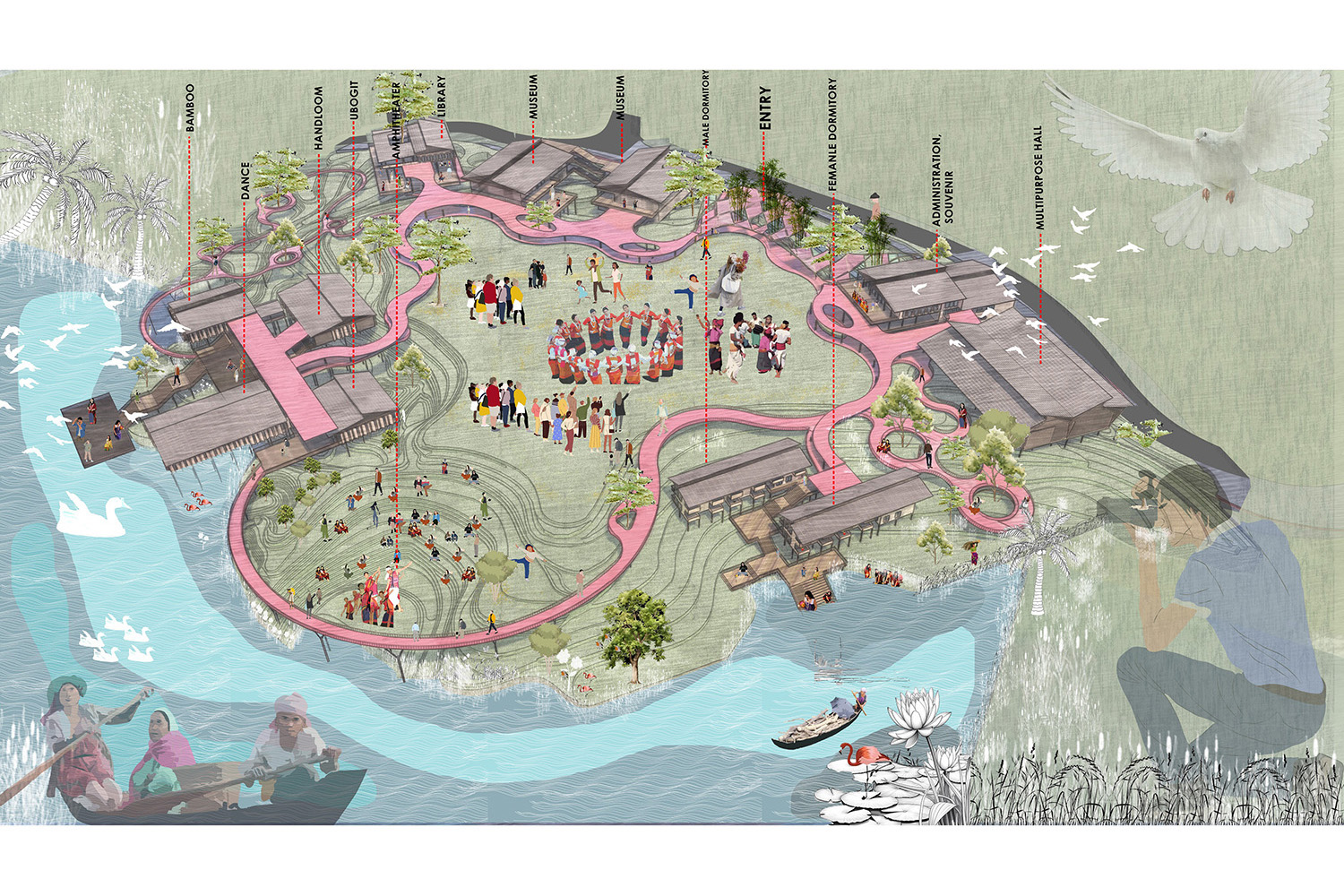From Spiritual to Touristic Experience: Rethinking Religious Tourism in Langalbandh

This studio project envisions the historic holy site of Langalbandh, a well-known pilgrimage destination in Bangladesh for Sanatan (Hindu) believers. Every year, approximately 1-1.5 million Hindu devotees visit this place from all across Bangladesh, as well as India, Nepal, and Sri Lanka, to take a sacred bath in the Old Brahmaputra River and participate in other religious festivities. In order to make this holy occasion more convenient and secure, the project looks into a sustainable strategy for developing religious tourism in Langalbandh through the creation of new infrastructure.


Langalbandh is home to a number of ancient temples and hermitages as well as numerous bathing ghats built to make bathing easier for the pilgrims. Currently, the site has 13 ghats and 10 temples dedicated to various gods. The majority of the ghats are on the river’s west bank since they were erected with the Sun god, who rises in the east, in mind.
But due to years of neglect, the three-kilometer-long sacred site of Langalbandh’s infrastructure is now in poor shape. Every year, numerous mishaps occur during the celebration. According to the minutes of different inter-ministerial meetings, it is advised that this holy location be promoted as a tourism destination for its history, social values, and religious values by taking proper efforts to ensure that religious festivals are celebrated peacefully and safely.



The goal of this project is to safeguard Langalbandh’s cultural and historical significance while also striving to restore the local built and social environment. The proposed development strategy focuses on three areas:
Routes and accessibility:
Langalbandh Road became a pedestrian route during the festival. Visitors usually take the same route in and out, causing overcrowding and accidents during festivals. Furthermore, ghats are isolated by no connecting paths. A bypass lane connecting to the temple road is proposed to create a loop. A stand is designed at the connecting point for medium-sized vehicles. A riverside promenade is also planned connecting all the temples and ghats.


Bathing ghats:
Existing ghats are in poor condition. The festival crowd has outgrown these ghats. Therefore, a ghat module with a plaza area and a change space to service a group of people has been proposed.

Section through ghat area © Dip Chandra DasAncillary facilities:
As many visitors come and stay here for a while, many temporary structures and shades are erected up during the event. Hence, new facilities like accommodation, health care center (Maternity center), craft market, multi-usable pavilion, restaurant and shop, public toilet and drinking water facilities, administration and parking are proposed.
The sacred site of Langalbandh plays a significant role in Bangladesh’s heritage. Due to the location’s historical and religious significance, a detailed master plan design and sustainable development of this place of worship are absolutely essential. If the development plan is effective, more pilgrims and tourists will visit the historic holy place all year round, providing a substantial boost to the local and national economies.















